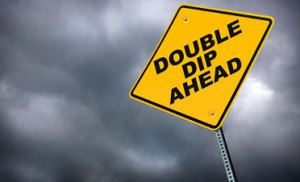 Tonight I saw a few tweets about MSNBC’s article “10 signs the double-dip recession has begun” and Fox Small Business article “Small Business Still Feeling Recession’s Impact“. I read both articles and the first article points out 10 things which are pretty easy for the average American to see.
Tonight I saw a few tweets about MSNBC’s article “10 signs the double-dip recession has begun” and Fox Small Business article “Small Business Still Feeling Recession’s Impact“. I read both articles and the first article points out 10 things which are pretty easy for the average American to see.
- Inflation
- Investments have begun to yield less
- The auto industry
- Oil prices
- The federal budget
- China economy slows
- Unemployment
- Debt ceiling
- Access to credit
- Housing
There are tons of negative articles out there and the news typically likes to focus on fear and bad news. If I’ve learned anything over the last three years while starting up a company in the worst economic times our generation has seen is that I personally can’t sit here and blame the economy or focus on the negative economic indicators. Here are the things that we’re going to focus on:
Customer Service
Just like when we started the first recession, we have to continue to focus on the customer. We need to listen to the customer and make sure that we’re providing incredible customer service. One of our core values is “Wow every customer, every engagement, no exception”. If we’re doing that we should be attracting the right customer and keeping our existing customers happy.
Differentiation
Seth Godin says it best. “Consumers are not loyal to cheap commodities. They crave the unique, the remarkable, and the human.” If your startup is differentiating itself by price alone, you’re going to have a brutal time in double-dip recession when your competition just sits there and lowers its prices. It’s certainly going to be a race to the bottom. You better differentiate yourself on something remarkable and human.
Setting Annual, Quarterly, and Monthly Goals
Every startup, small company better set annual goals. You can’t have a great year unless you have four great quarters. Breaking those quarters down to months and months to weeks is the only way to expect that you possibly achieve those goals. Otherwise, you’re going to end up hoping that you’re going to have a great quarter or hoping that you’ll have a great year. The one thing that we’ve been using is the One Page Strategic Plan. If you haven’t read “Mastering the Rockefeller Habits” by Verne Harnish, I would highly recommend it. It’s a practice that has certainly help us focus on hitting our goals and growing the company rather than focusing on the recession.
Get Two More Customers
I’m going to end this blog post with a quote that I heard from Patrick Thean, an instructor at the MIT Entrepreneurial Masters Program that I’m in. Patrick said “A small company doesn’t need to worry about the recession, what the small company should be thinking about is getting two more customers every month”. You will need to get out there and hustle, bring in new two new customers. If you do these things, you’ll be increasing your revenue, growing your business, and probably hiring employees. Isn’t it much simpler to think about the recession from that perspective rather than a bunch of variables that we can’t control?